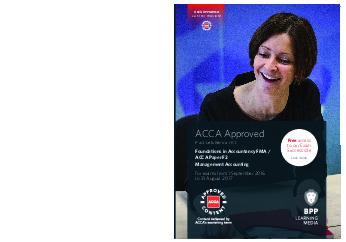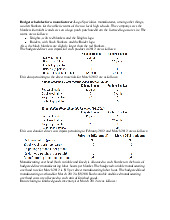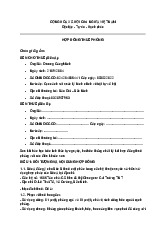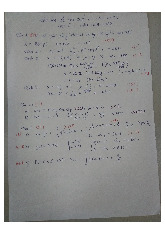
















Preview text:
my life FILLING IN A FORM 9
vocabulary everyday routines • reading the secrets of sleep •
grammar present simple and adverbs of frequency • pronunciation /s /, /z / or /ɪz / • speaking your habits
1a How well do you sleep?
Vocabulary everyday routines Reading
1 Work in pairs. Match the two parts of the
2 Read the questionnaire about sleep habits and
expressions for everyday routines. Then describe
lifestyle. Answer the questions. Then work in pairs
your typical day using some of the expressions. and compare your answers.
I often get home late from work …
3 Turn to page 153 and find out what your answers say about your lifestyle.
Grammar present simple and adverbs of frequency
4 Look at these sentences from the questionnaire. Match
the sentences (1–2) with their uses (a–b). 9 get up about i until midnight
1 I work long hours and get home late. 1 0 stay up j eight
2 The average human needs around eight hours of sleep per night. How well do you /teɪk ə nap/ 10
a to talk about things that are always true b to
talk about habits and routines PRESENT SIMPLE
I/you/we/they sleep he/she/it sleeps I/you/we/they don’t sleep
he/she/it doesn’t sleep
Do I/you/we/they sleep … ? Does he/she/it sleep … ?
For further information and practice, see page 156. my life FILLING IN A FORM ILLNESS 11
5 Look at the grammar box. Complete the article about
ADVERBS and EXPRESSIONS OF FREQUENCY
sleep with the present simple form of the verbs.
She’s usually late for work.
I often wake up at seven.
Do you often wake up in the night?
The secrets of sleep Why 1 do we
She wakes up two or three times a night. Every
sleep (we / sleep)?
month I visit my grandparents. From birth, we 2 (spend) a third of our lives
asleep, but scientists still 3 (not / know) exactly
For further information and practice, see page 156. why. Why 4
(we / have) problems sleeping?
9 Look at the grammar box. Notice the position of
In modern society, many adults 5
the adverbs and expressions of frequency in the
(not / get) the seven or eight hours sleep they need every
sentences. Then choose the correct options to night. We 6
(work) long hours and we rarely 7 (go) to bed at sunset. complete the rules (1–2). Why 8
(we / sleep) differently? It 9
1 An adverb of frequency goes after / before the
(depend) on the time of year and also our age. Teenagers
verb to be, but it normally goes after / before the usually 10 main verb.
(need) more sleep than adults. Lots of elderly people 11
2 An expression of frequency (e.g. twice a week) (not / sleep) longer
usually goes at the beginning / in the middle or at
than four or five hours at night, but they often the end of a sentence. 12 (take) naps during the day. Unit 1 Lifestyle
1 0 Put the adverb or expression in brackets in the
6 Pronunciation /s/, /z/ or /ɪz/ 3 a
Listen to the endings of these verbs. 12
Is the sound /s/, /z/ or /ɪz/?
A: How often do you eat out? B: 1 feels /z/ 5 goes
About once a month. 2 needs 6 dances
be late for work/college take public transport eat 3 watches 7 does
out in restaurants check your phone for messages 4 sleeps 8 works
play board games go on holiday check your emails 3 b
Listen again and repeat the verbs. be stressed at work
reading the island of Okinawa • wordbuilding collocations with do, play and go • listening in search of a long life • grammar present simple
and present continuous • speaking your current life
1b The secrets of a long life
Think about how you say the endings.
1 2 Work in groups. Prepare a questionnaire about
lifestyle for another group. Start each question
7 Discuss the questions.
with How often …? Are you often …? or Do you
1 What time do you and your friends normally get
often …? and offer three choices of answer (A, B up? How late do you stay up? or C).
2 Does anyone in your family ever take a nap in the afternoon?
1 3 Work with another group and ask your questions from
3 How does this change during the year? Do people
Exercise 12. Tell the class about the other group’s
sleep longer in the summer or in the winter? answers. Reading
8 Look at the list. Then underline the adverbs of
frequency in the questionnaire and write the adverbs
1 Who is the oldest person you know? How old is he or in the list.
she? How healthy is their lifestyle?
My grandfather is the oldest person I know. He’s 83 and still plays golf.
2 Work in pairs. Read the article The Secrets of a Long
Life. Answer the questions. 1 Where is Okinawa Island? 2 Why is Okinawa famous? 3
What kind of food do the people eat? 4
Which of their activities do you do?
correct place in the sentence. Sometimes there
I don’t go fishing but I do gardening.
is more than one correct answer. always
1 My brother plays tennis on Saturday mornings.
Wordbuilding collocations with do, (always)
2 We eat out at a restaurant. (about once a month)
play and go
3 I take a bus to school. (every day)
WORDBUILDING collocations with do, play and go
4 She is at home in the middle of the day. (rarely)
5 They go on holiday. (twice a year)
We use certain nouns with certain verbs. These are called
6 Are you late for work? (often) collocations.
go fishing NOT do fishing or play fishing Speaking
For further practice, see Workbook page 11. my life
1 1 Work in pairs. Find out about your partner’s habits.
Ask questions with How often …? and these ideas.
Answer using an adverb or expression of frequency. my life FILLING IN A FORM ILLNESS 13
3 Look at the wordbuilding box. Read the article again
3 In Sardinia, men don’t live the same number of years
and find the collocations with do, play and go. as women. Complete the table.
4 Sardinian families often eat together.
5 David says life in Sardinia is less stressful than in other Do Go Play places. fishing
6 Younger people are eating more unhealthy food and
they aren’t doing much exercise.
8 Think about the lifestyle of people in your country. Is it
similar to the lifestyle in Sardinia? How traditional is your country? Tell the class.
4 Add these activities to the table in Exercise 3. Use a
dictionary if necessary. Then think of one more activity
Grammar present simple and present for each verb. continuous
cards hiking homework nothing running shopping
tennis the piano yoga football karate surfing
9 Look at the sentences from the interview. Which two
sentences use the present simple? Why?
5 Work in pairs. Tell your partner about people you know
1 Well, one man is trying to answer these questions and
using the collocations in the table.
that man is photographer David McLain.
My brother does karate. He’s a black belt.
2 He’s speaking to us right now on the phone.
3 Men live to the same age as women. 4
4 Every Sunday the whole family eats a big meal or false (F)? together. 1
5 Also, more and more young people are moving to the
David McLain is travelling to different countries.
city these days, and they are doing less exercise
2 He’s talking to the radio presenter in the studio. because of their lifestyle. The Secrets of a Long Life 14
1 0 The three other sentences in Exercise 9 use the Speaking my life
present continuous. How do you form the present continuous?
1 3 Write pairs of questions. Use the present simple
in one question, and the present continuous in the
1 1 We use the present continuous to talk about other.
something happening now or around now. Match
1 a H ow / usually spend your free time?
the three present continuous sentences in
reading nature and health • word focus feel • critical thinking giving examples • speaking making lives healthier
1c Nature is good for you
Exercise 9 with the specific uses (a–c).
How do you usually spend your free time?
a to talk about a changing situation b to talk about
b / you / do / much sport these days?
something happening around now, but not
Are you doing much sport these days?
necessarily at this exact moment
2 a / often / read novels?
c to talk about something actually in progress now
b / read / any good books at the moment?
1 2 Complete the sentences with the present simple or
3 a Where / normally go on holiday?
present continuous form of these verbs.
b Where / plan to go this year?
4 a / speak / any other languages? b / learn / any new
check not / do not / eat go learn p lay read s languages? pend
1 4 Work in pairs. Ask and answer your questions from
1 We ’re learning a new language at the moment. Exercise 13. 2 My friends and I often time at each other’s houses. Reading
3 Can you wait a moment? I my emails.
1 Look at the photo. Where is the woman? What can 4 How often you to she see? the gym? 5 I
a really interesting book at the
2 Read the article. Match the topics (a–c) with the moment.
paragraphs in the article (1–3).
6 Currently, a friend of mine any sweets
a how much time we spend outdoors b
and he says he feels healthier.
making nature part of city life c studies 7 I’m nearly eighty, but I any exercise! by doctors 8 More old people computer games
these days. It isn’t just the young people.
3 Read the article again. Answer the questions.
1 What do most people think about nature?
2 What is the main change in how people spend their time?
3 What is happening at national parks in Canada? my life FILLING IN A FORM ILLNESS 15
4 After the maths test, where did some people
a For example, the number of visitors to Canada’s look at nature?
national parks is getting lower every year. b Humans
5 In Toronto, where did healthier people live?
are spending more time inside and less time outside.
6 What are they going to build in Dubai?
c And in countries such as the USA, only 10% of
7 Where can children study in Switzerland?
teenagers spend time outside every day.
8 In South Korea, how many people visit the new forests every year?
8 Read paragraphs 2 and 3 of the article. Find the sentence
with the main idea and sentences with examples.
Underline the words and phrases for giving examples.
Word focus feel
For example, the number of visitors to Canada’s national
4 Underline three phrases with feel in the first
parks is getting lower every year.
paragraph of the article. Match the phrases to the uses (1–3).
9 Complete these sentences in your own words. Use
examples from your own life. Then tell your partner.
1 to talk about your emotions or health
2 to talk about wanting to do something
1 I relax in my free time in different ways. For example, 3 to talk about an opinion …
2 My home town has some places with trees and
5 Complete the questions with these words. nature, such as …
3 There are some beautiful national parks in my country. better l ike that A good example is … 1 What do you usually feel doing after a day at work? Speaking my life 2 Do you feel nature is good for us? Why? / Why not?
1 0 Work in groups of four. Imagine your town has some
3 After a difficult day, what makes you feel
money to make people’s lives healthier. Look at the ideas in the evening? below and think of one more.
• one hundred new trees in the town
6 Work in pairs. Take turns to ask and answer the
• a 400-metre running track in the park questions from Exercise 5.
• a new park with a children’s play area
A: W hat do you usually feel like doing after a long
• two cycle paths across the town day at work?
• a bridge across the river with a garden
B: G oing for a run in my local park and then eating
dinner. Sometimes I go out and meet friends.
1 1 Discuss the ideas in your group and choose the best idea.
Critical thinking giving examples Give reasons and examples.
I think cycle paths are a good idea because cycling is good
7 When writers give an opinion in an article, they often
for your health and good for the environment.
support the idea with examples. Look at these
sentences from paragraph 1. Which sentence has the
1 2 Present your idea to the class. Then compare your ideas.
main idea? Which sentences give examples?
Try to agree on the best idea. 16 is good for you my life FILLING IN A FORM ILLNESS 17
vocabulary medical problems • pronunciation one or two syllables? • real life talking about illness
1d At the doctor’s
Vocabulary medical problems
a I’ve got a headache. b I’ve got backache. c I’ve got a
1 Look at the pictures. Match the people (1–8) with the runny nose. d I’ve got earache. e I’ve got stomach ache. f I’ve got a temperature. g I’ve got a
sore throat. h I’ve got a bad cough.
2 What do you do when you have the problems in
Exercise 1? Choose the best option (1–3) for each
problem. Work in pairs and compare your ideas. 1 I go to bed. 2 I take medicine or pills.
3 I go to the pharmacy or see my doctor.
3 Pronunciation one or two syllables? 7 a
Listen to these words. Which words have
one syllable? Which words have two? Underline
the stressed syllable in the two-syllable words.
ache h eadache ear earache stomach throat c ough b Listen again and repeat.
Real life talking about illness 8 4
Listen to two conversations, one at a
pharmacy and one at a doctor’s. What medical
problems does each person have? medical problems (a–h). 8 5
Listen again and write the number of the
conversation (1–2) next to the medical advice.
a Take this medicine twice a day. 1 b Go to
bed. c Drink hot water with honey and lemon.
d Take one pill twice a day. e Buy cough sweets.
6 Match the beginnings of the sentences (1–9) with the
endings (a–i). Use the expressions for talking about illness to help you.
1 Have you got aa this medicine. 2 You should takeb
buy some cough 3 It’s good forsweets? 4 Try drinkingc
earache. 5 Why don’t you d then come back and 6 I’ve gotsee me again. 7 Do you feele a sore throat. 8 You needf hot water with 7 18 9 If you still feel ill, honey and lemon. g temperature? h sick at all? i to take one of these pills. TALKING ABOUT ILLNESS
Asking and talking about illness I don’t feel very well.
I feel sick/ill. / Do you feel sick/ill?
Have you got a temperature? How do you feel? Giving advice
You need to / You should take this medicine.
Why don’t you buy some cough sweets? It’s good for stomach ache. Try drinking hot tea.
If you still feel ill, then come back and see me again. 7 Work in pairs.
Student A: You have a medical problem. Choose one of
the problems from Exercise 1 and tell Student B what your problem is.
Student B: You are a pharmacist. Ask how Student A feels and give advice.
Then change roles and have a new conversation. my life FILLING IN A FORM ILLNESS 19
1e Personal information Writing filling in a form
3 Writing skill information on forms
1 Work in pairs. Discuss these questions.
a Match the questions (1–7) with the • What kinds of forms do you sometimes fill in? headings on the forms
in Exercise 2 • Think of a form you filled in. What information did you write?
where you write the information.
2 Look at these forms. What is each form for? 1 Are you married, single or my life 20
divorced? marital status
2 Do you take any pills or medicine? Title
3 How many children do you have?
4 What country were you born in?
5 What city/town were you born in? Surname
6 Who can we call in your family if you need help?
7 What is the first letter of your middle name?
b Look at the forms again. Answer these
questions. Then check your answers on page 155.
1 How many abbreviations can you find in
the forms? What do they mean? DOB = Date
Details of past surgery or operations of birth
2 Under the heading Title on forms, we use
the abbreviations Mr, Mrs, Ms and Dr. What do they mean?
3 Which form doesn’t want you to write in lower-case letters?
4 Work in pairs. Design a form for new
students at a language school.
• List all the information you need about the students. • Then prepare the form.
5 Exchange your form with another pair. Use
these questions to check their form.
• Is their form easy to fill in?
• Do you know what to write in each part?
• Would you change anything on the form? 21 22 Student A Student B Before you watch
When do you come to the
Why do you like coming to the 1 park? park?
Look at the photo and read the caption.
Where is your nearest park? Why do We come to the park very There are a lot of people like going there? . Every for Jasmine
to play with. There are beautiful 2 Key vocabulary after lunchtime, around everywhere.
Read the sentences. The words and phrases p.m.
in bold are used in the video. Match the I come to the park I like this part of the park
words to the definitions (a–f). . On sunny actually, it’s
1 I like coming to the park no matter
days I come here in my lunch up and there’s this beautiful .
what the weather is like.
2 Parents push their young children in prams. When we were a young It’s nicer than the
3 There’s a great view from the top of family and had the hill. , we used
4 We often come to the park when we’re
to come here, so it has in the area. memories. 5
There’s a nice walkway round the park. way. It’s a
6 In the spring, there are beautiful park and we
flowers on the ground and blossom on . the trees. I go through the park I like in
a a region or part of a town b it has and this park. four wheels and you move
babies or small children in it I spend time with
c flowers that grow on trees d it my friends.
isn’t important and it doesn’t change I come to the park my decision , I come here I like to
e what you can see around you f about a week.
jogging and I like to do
another word for a path or small here. The road only for people park is quiet and there are lots of and trees. While you watch I try and come to the park There are always wild 3 Watch the video and 1.1 and blossom
number a–g in the order you see .
on the trees. It’s lovely to them. . a A man is cycling. b
A woman is walking with her dog.
5 Share your notes with your partner and complete 1.1 c
A student is jogging.d There’s a large
the other column. Then watch the video again and check
house near the park. e Two people are all your answers.
walking down a path. f A student is doing
pull-ups. g A tractor is cutting the grass. After you watch
4 Work in pairs. Look at the
6 Work in pairs. Cover the notes in the table and look at 1.1
the faces of the different people.
table and watch the video again.
Student A: Choose one person in the video but don’t tell
Student B. Listen to Student B’s questions and give the
Student A: Complete the notes in
answers from the video. column 1.
Student B: Ask the two questions from the video: When do
Student B: Complete the notes in
you come to the park? How often do you come? Listen to column 2.
Student A’s answer. Which person from the video is Student A? my life 23
7 Change roles and repeat the activity. 24 25




